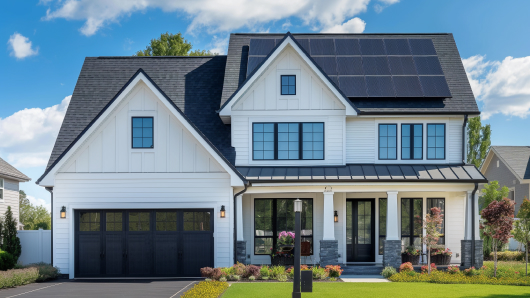EnergySage
Smarter energy decisions

Over 2.5 million homeowners in the U.S. have opted for solar systems in their homes for good reason. It's a great investment that boosts your home's value and slashes electricity expenses by tens of thousands of dollars.
As you search for the right solar loan provider, review the solar loan FAQs below to ensure you find one tailored to your needs.
The decision to buy or lease your solar energy system depends on your reasons for going solar. If you are interested in maximizing the financial returns of your solar energy system, buying the system is probably a better decision for you. However, if you prioritize an easy, maintenance-free way to reduce your energy bills and help the environment, you should consider a solar lease.
Solar loans and solar leases each have advantages and disadvantages. Both options reduce your monthly electricity bills and your impact on the environment, but the terms and conditions of each type of agreement are different.
The primary difference between secured and unsecured solar loans is that secured solar loans require that you promise an asset, usually your home, as collateral for the money that you borrow. Unsecured solar loans do not, but their interest rates are generally higher to compensate for the increased risk taken on by the lender. To understand which financing option is best for you, evaluate offers for both secured and unsecured loans on EnergySage.
Many different institutions offer solar loans, including local and national banks, specialty financing companies, manufacturers, and credit unions. To choose the best solar loan for you, compare options from a few different financing providers. Use the EnergySage Solar Marketplace to review multiple equipment, installer, and financing options.
Many installers provide loans, but not all installers. These are often unsecured solar loans, which may have hidden fees but other benefits relative to secured solar loans. While installers are often dealers for loans, they’re not necessarily the lender themselves. By signing up for a solar loan through an installer, you may be borrowing from a separate loan company that works with the installer. It’s important to consider the terms and conditions of your agreement with the lender as well your agreement with the installer.
Going solar is a big purchase for homeowners, which is why many people seek financing options for their systems. While factors like your credit score and debt-to-income ratio (DTI) typically influence approval and interest rates from lenders, there are still ways to qualify for a solar loan even if your credit isn't perfect. Read how to go solar even without stellar credit.
Yes; homeowners don't realize that installing a solar panel system can be one of the smartest retirement investment options. By thinking of a home solar panel system as an investment opportunity, homeowners can reduce or even eliminate their electricity bills, freeing up more than $1,000 in cash each year. Electricity rates increase on average 2.5% every year, which means if you’re on a fixed income your electric bill is taking up a larger portion of your budget every year. Going solar turns your electric bill into a predictable fixed cost that never goes up. Read to learn more.
You can also check out our clean energy financing section to learn how to finance heat pumps and other renewable energy solutions.